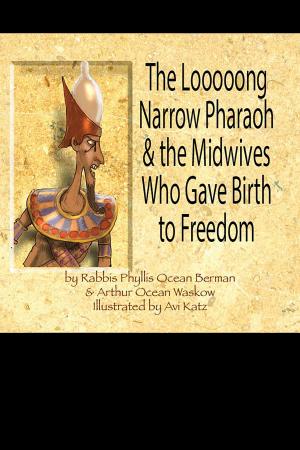| Author: | Marc D. Angel | ISBN: | 9781310446818 |
| Publisher: | Albion-Andalus Books | Publication: | May 13, 2015 |
| Imprint: | Smashwords Edition | Language: | English |
| Author: | Marc D. Angel |
| ISBN: | 9781310446818 |
| Publisher: | Albion-Andalus Books |
| Publication: | May 13, 2015 |
| Imprint: | Smashwords Edition |
| Language: | English |
Ever since his novel, The Search Committee, I have been waiting anxiously for Rabbi Marc D. Angel's next work of fiction. The short story collection The Crown of Solomon and Other Stories was worth the wait! A unique and moving collection that allows the reader insight into Sephardic Jewry's rich heritage." — Naomi Ragen, Author of The Sister's Weiss and the Ghost of Hannah Mendes
These wry parables of Jewish wisdom and ignorance touch a nerve. We find ourselves thinking about these characters long after we've put the book down—this one timid and self-demeaning until she suddenly is not, that one stubborn and aggressive, another, hesitant beyond reason. The stories quietly ambush assumptions of many kinds. — Jane Mushabac, CUNY Professor of English, author of "Pasha: Ruminations of David Aroughetti."
While reading Rabbi Marc Angel’s The Crown of Solomon and Other Stories, I could not stop wondering whether David Barukh, the unrecognized Sephardic Mozart, was a metaphor for the last two centuries of the Ottoman Sephardic culture, a metaphor for all the wasted opportunities and unrealized potentials! Rabbi Angel’s stories demonstrate that Sepharadim can still teach modern American readers a thing or two, a lesson in honesty, or modesty—or, maybe, how to turn a defect into effect. Rabbi Angel does not idealize his Sephardic characters, not even the rabbinic ones. Some of his rabbis, like Hakham Shelomo, are wise in an a la turca way; others are quite average, like Hakham Ezra; some are humble, honorable and even saintly like Rabbi Bejerano—and yet others are frivolous and self-centered, like Rabbi Tedeschi. All are convincingly human and quite imaginable in real life. The lay characters of the stories are simply conquering in their charming simplicity, in their human rootedness and in their folk wisdom. While reading Rabbi Marc Angel’s new book, I felt everything was in its place. It takes a person deeply rooted in both cultures, traditional Sephardic and modern American, to tell so Sephardic a story in a language such as English, and who makes everything feel totally right. — Dr. Eliezer Papo, Head of the Sephardic Studies Research Institute, Ben-Gurion University of the Negev
Ever since his novel, The Search Committee, I have been waiting anxiously for Rabbi Marc D. Angel's next work of fiction. The short story collection The Crown of Solomon and Other Stories was worth the wait! A unique and moving collection that allows the reader insight into Sephardic Jewry's rich heritage." — Naomi Ragen, Author of The Sister's Weiss and the Ghost of Hannah Mendes
These wry parables of Jewish wisdom and ignorance touch a nerve. We find ourselves thinking about these characters long after we've put the book down—this one timid and self-demeaning until she suddenly is not, that one stubborn and aggressive, another, hesitant beyond reason. The stories quietly ambush assumptions of many kinds. — Jane Mushabac, CUNY Professor of English, author of "Pasha: Ruminations of David Aroughetti."
While reading Rabbi Marc Angel’s The Crown of Solomon and Other Stories, I could not stop wondering whether David Barukh, the unrecognized Sephardic Mozart, was a metaphor for the last two centuries of the Ottoman Sephardic culture, a metaphor for all the wasted opportunities and unrealized potentials! Rabbi Angel’s stories demonstrate that Sepharadim can still teach modern American readers a thing or two, a lesson in honesty, or modesty—or, maybe, how to turn a defect into effect. Rabbi Angel does not idealize his Sephardic characters, not even the rabbinic ones. Some of his rabbis, like Hakham Shelomo, are wise in an a la turca way; others are quite average, like Hakham Ezra; some are humble, honorable and even saintly like Rabbi Bejerano—and yet others are frivolous and self-centered, like Rabbi Tedeschi. All are convincingly human and quite imaginable in real life. The lay characters of the stories are simply conquering in their charming simplicity, in their human rootedness and in their folk wisdom. While reading Rabbi Marc Angel’s new book, I felt everything was in its place. It takes a person deeply rooted in both cultures, traditional Sephardic and modern American, to tell so Sephardic a story in a language such as English, and who makes everything feel totally right. — Dr. Eliezer Papo, Head of the Sephardic Studies Research Institute, Ben-Gurion University of the Negev















